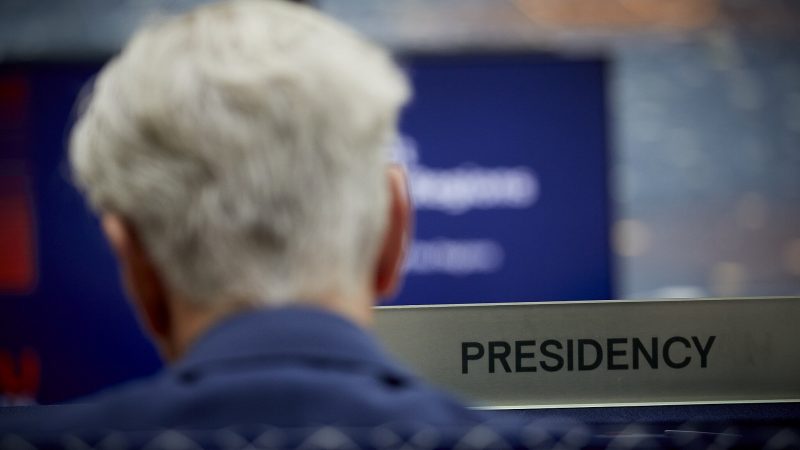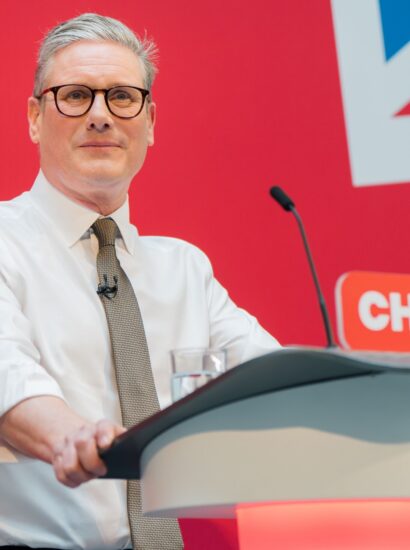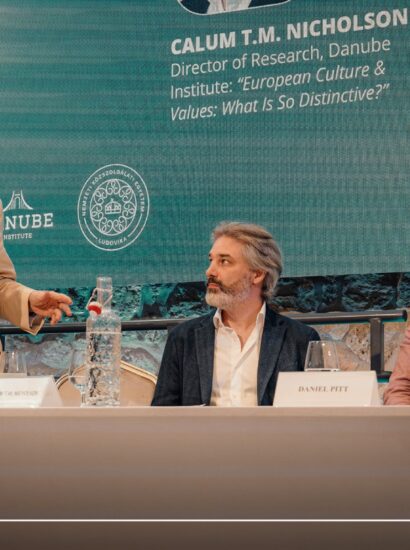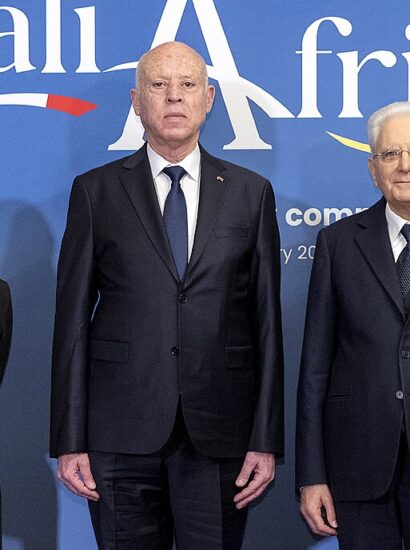It took ten years for the European Union to regain appetite to expand its geographical borders and thus, its geopolitical weight. The change in attitude towards enlargement, as after the collapse of the Soviet Union and the socialist camp, is dictated not so much by the internal needs of the Union as by major geopolitical changes, the most important of which is the Russian aggression against Ukraine.
On 8 November, the European Commission will publish its enlargement country reports and most political analysts expect it to propose the opening of accession negotiations with Ukraine and possibly Moldova. However, no one should be fooled by the hypersonic speed at which Ukraine, which is fighting a life-and-death struggle with the Russian aggressor, is currently moving towards the European Union. Indeed, experience and logic suggest that the initial enthusiasm on the European side will inevitably wane as individual Member States face the impact of the eastward and south-eastward expansion on their particular interests.
Two prominent EU and enlargement experts, Charles Grant, head of the London-based Centre for European Reform (CER), and Heather Grabbe, senior adviser to the Open Society Foundation, agree that despite the current rush, mass admission of new members is unlikely before 2035.
Although no one can predict how many countries will eventually be affected by the next round of enlargement.
Conjuncture for Expansion – With Delicate Moves Only
One thing is certain, however: the EU’s enlargement has not had such a strong tailwind for a long time, with two key member states, Germany and France, traditionally sceptical about the admission of new members, backing the process primarily for geostrategic reasons and perhaps prepared to accept the not always favourable consequences, one of which will inevitably be a radical reform of the EU’s common agricultural policy.
The admission of nearly ten countries (six from the Western Balkans and three from Eastern Europe) would not only give the EU greater economic and political weight, but would also reduce the continent’s vulnerability to the intrusive Russian, Chinese and Turkish influence in the Western Balkans and help to extend European identity.
However, this great leap must be carefully prepared, otherwise the European Union’s ability to act and the achievements so dear to its members will suffer. To make the process as smooth as possible, a creative approach will be needed, both in managing the enlargement process and in internal EU reforms.
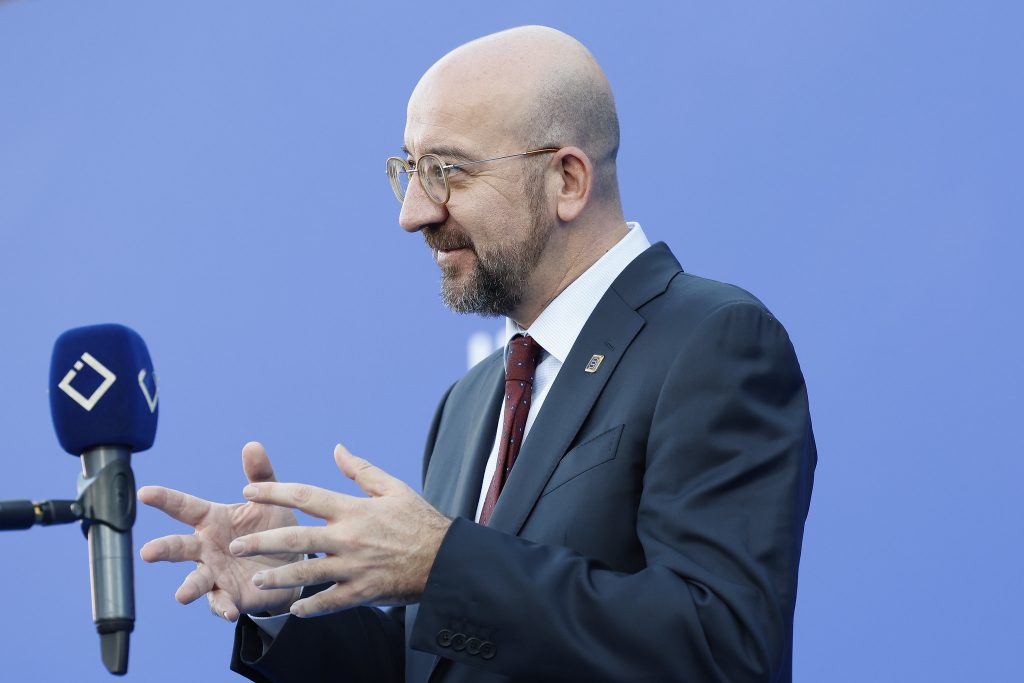
President of the European Council Charles Michel (Photo: Pool PEUE/ Juanjo Martín)
An old dilemma is whether deepening should precede widening, or whether the two processes can run in parallel, converging at some point. There is little doubt, and most political actors and experts agree, that the latter seems to be the way forward. One need not go back that far for an example: the last reform of the EU’s founding treaty, the Lisbon Treaty, which is still in force today, was adopted only after the great EU enlargements of 2004 and 2007. Simply because governments can only take decisions, often involving resignations, when under pressure.
There is good reason to assume that this time will be no different, i.e. that the EU will have to acquire the absorption capacity along the way to ensure that it can continue to function and preserve its achievements within very different limits and under very different conditions than today.
The good news is that work is already well underway at the drawing board, the first step of which is to assess needs and requirements. Not to speak in abstract terms: preliminary estimates suggest that Ukraine alone, with 40 million people, will need $411 billion over the next decade.
There is no doubt that the new great opening to the East may require radical changes in the way the EU and its policies are financed, in decision-making, in the functioning of the EU institutions and in certain policies such as the common agricultural policy or cohesion policy.
If, for example, Ukraine were to be integrated into today’s CAP, spending on agriculture would have to increase by roughly 20 percent.
Breaking The Cycle: Accession Without Deepening the Cooperation?
It is clear that enlargement is not only a challenge, but also an opportunity for Member States to take decisions that are long overdue but which they have not dared to risk.
However, on internal reforms, it will be even more difficult, if at all, to find common ground with the current members than in previous enlargements. One thing is certain, however: countries that are particularly committed to enlargement (such as Hungary) will have to accept unpopular internal reforms, without which many old member states will lack the political support for the process.
One key question is whether, and to what extent and in what areas, unanimity in the Council can still be maintained?
It is partly the behaviour of the Hungarian government and its quasi-universal threat of a veto in the foreign policy field that has convinced EU members that with Serbia, Ukraine and others, maintaining unanimity in its current form would amount to inaction. At the same time, for many smaller member states, it remains a matter of guaranteeing that larger countries cannot override them by qualified majority voting on vital issues. Not to mention the fact that the big ones have not shown much inclination to give up their veto rights in tax policy either.
All this suggests that creative approaches, rather than black and white solutions, will be needed to keep the goats happy and the cabbages growing.
One way forward could be to blur the boundaries between EU member states and candidate countries or other partners. The financial and political decision-making consequences of accession could be mitigated, for example, by a method – which the EU is already partly applying to Ukraine – of only gradually admitting future members, not everywhere. The Western Balkan countries, which have been waiting at the EU’s gate for two decades, might even temporarily give up their veto rights in exchange for unrestricted access to the EU’s single internal market and a number of programmes that are still largely reserved for members.
Flags of the European Union flying in front of the European Commission building in Brussels, Belgium (Photo: rawpixel.com)
A recent report by German and French experts does not rule out a reverse course for current members that do not wish to go further in deepening integration. They could, according to the plan, remain stuck at the current EU level, but could also be brought into the partnership circle with access to the internal market guaranteed in return for a payment. But they would lose the possibility of having a say in EU decision-making or institutional representation (they would not have a commissioner in the Commission or a representative in the European Parliament).
The development of the EU budget is also a matter of concern, especially given that, in the foreseeable future, all current member states could be net contributors to the budget, given their average level of development.
However, the willingness and constraints of Member States to pay have led the EU down a path that has been untrodden in recent years. The most important of these is joint borrowing, or debt issuance, which does not require, at least in the short term, an increase in contributions. The problem with this, however, is that the EU, and through it its member states, could become indebted over time if the practice becomes too widespread.
Reforming the European Union: Maybe Not Even New Treaties are Needed
With the exception of a few member states, there seems to be no willingness for a comprehensive treaty change within the EU, mainly because of the bad experiences of the past (the vote against the Constitutional Treaty in 2005). Therefore, from the current perspective, a targeted and limited treaty change using the passerelle clause available in the Treaty seems more realistic. Or, even if this is not possible, a flexible interpretation of the framework of the Lisbon Treaty, which entered into force in December 2009, even if this may at times overstretch the existing legal framework.

